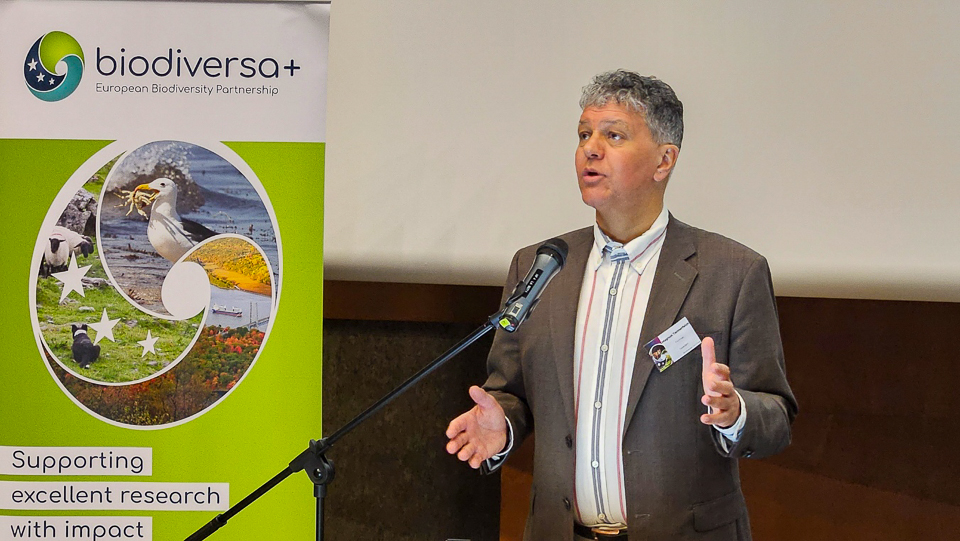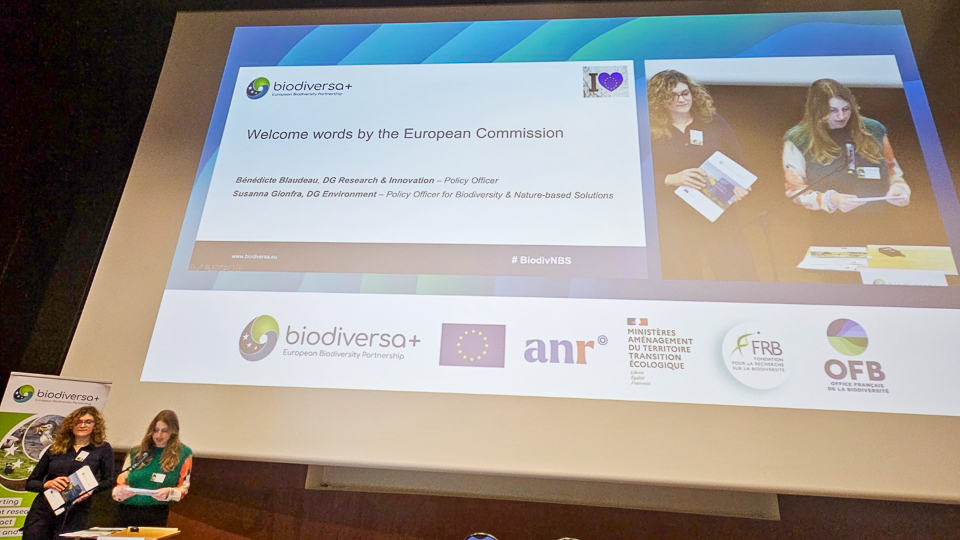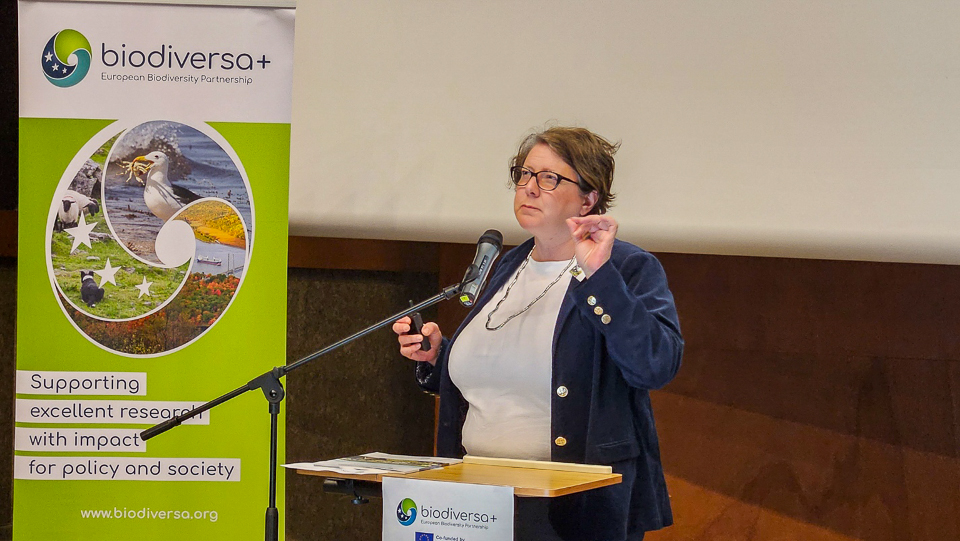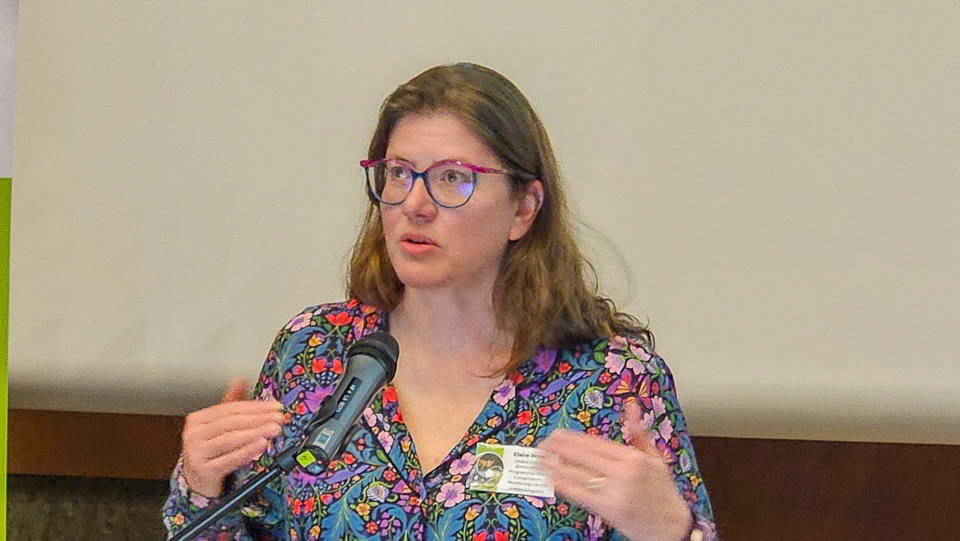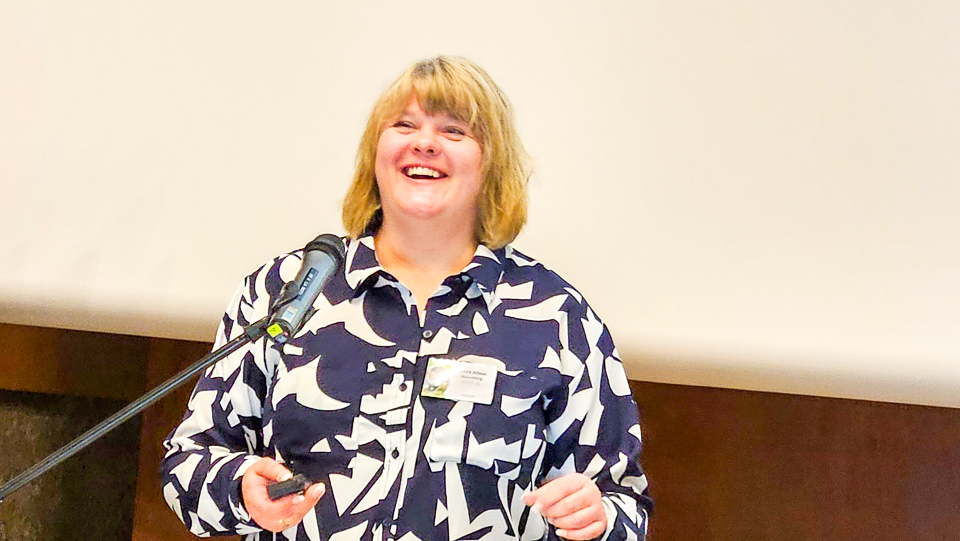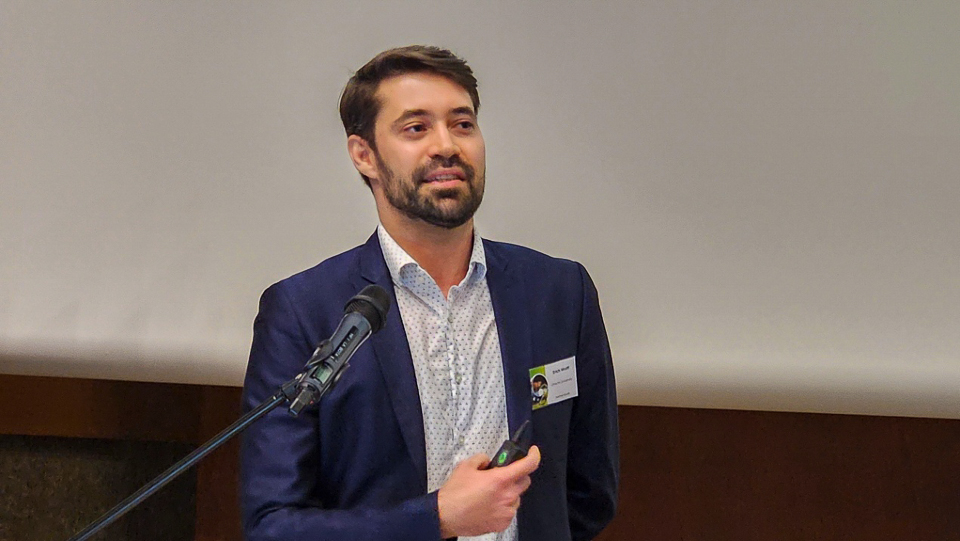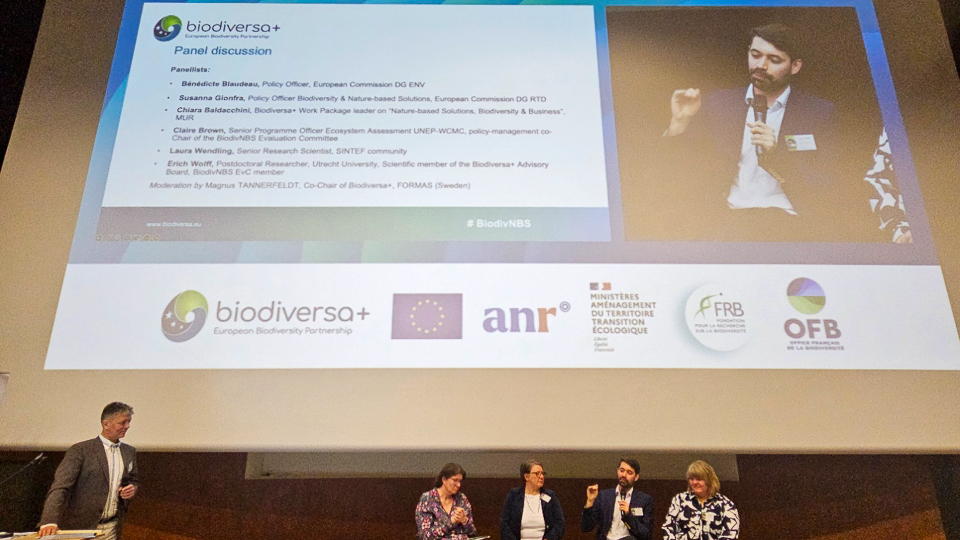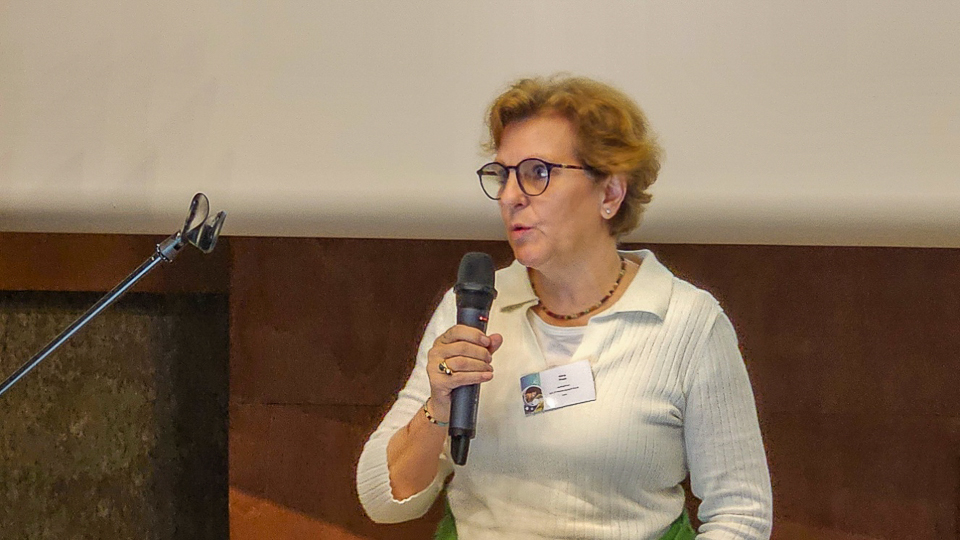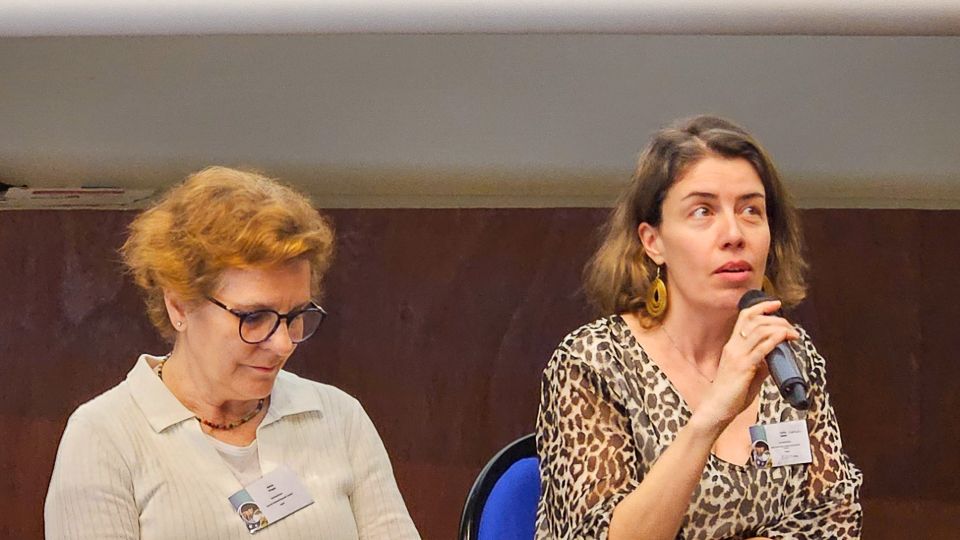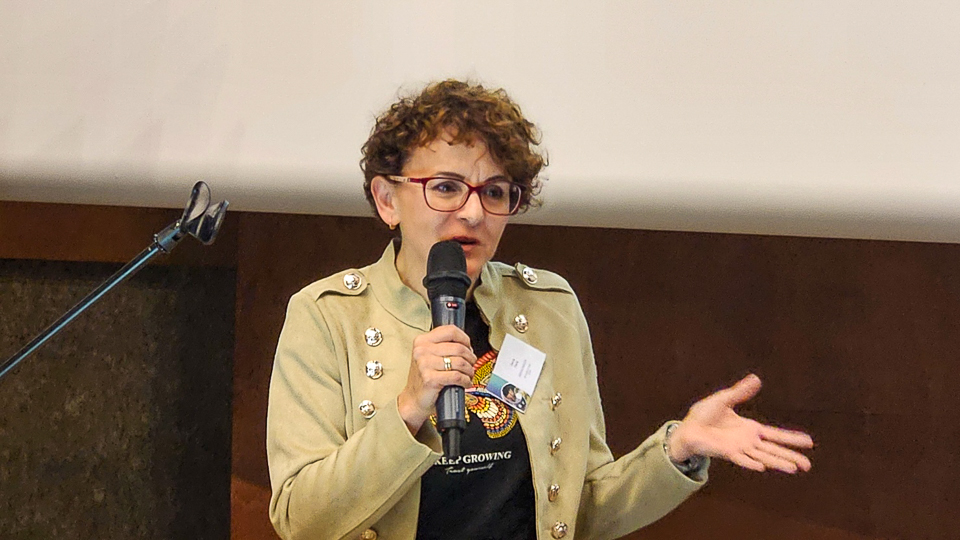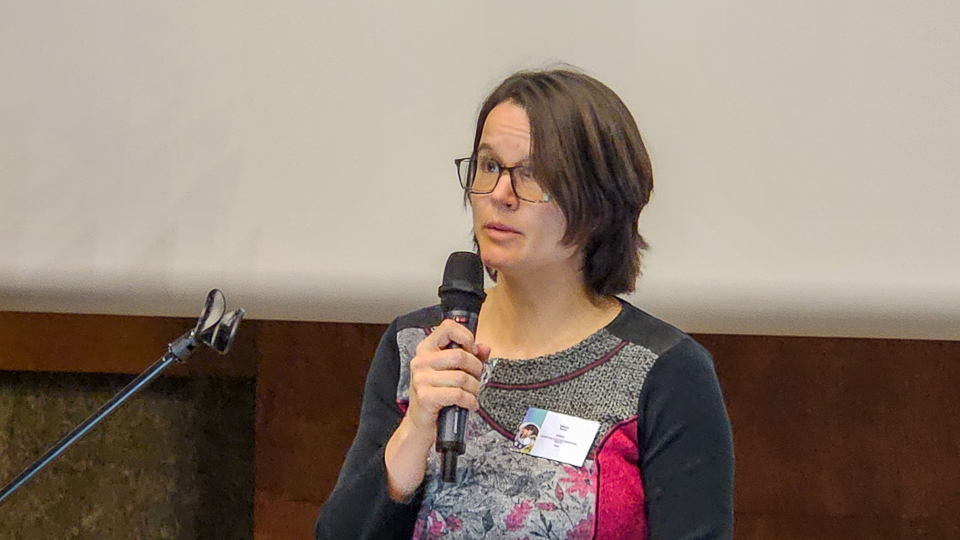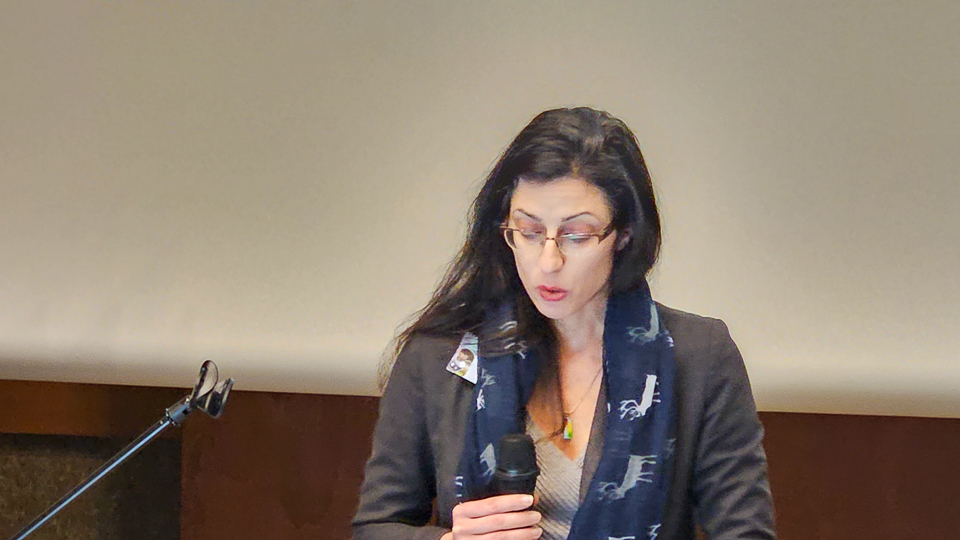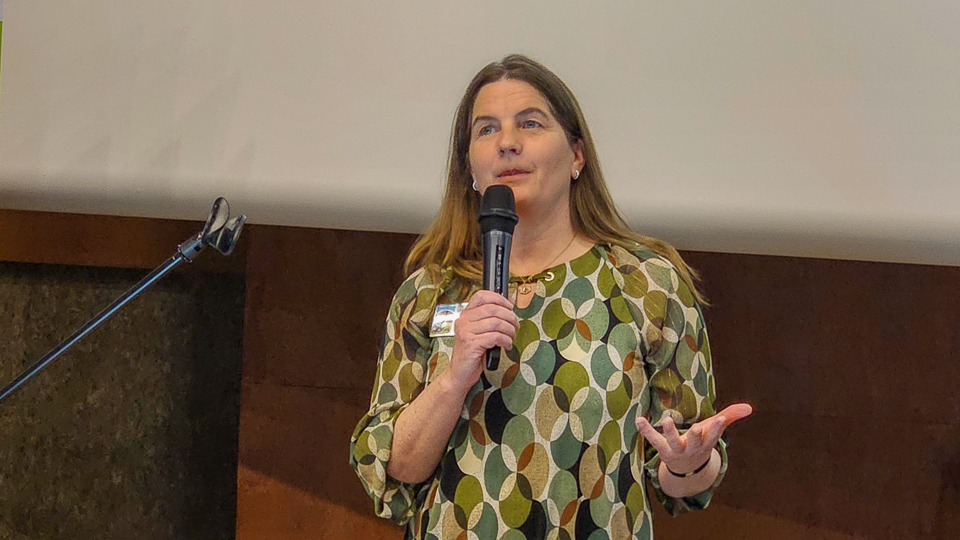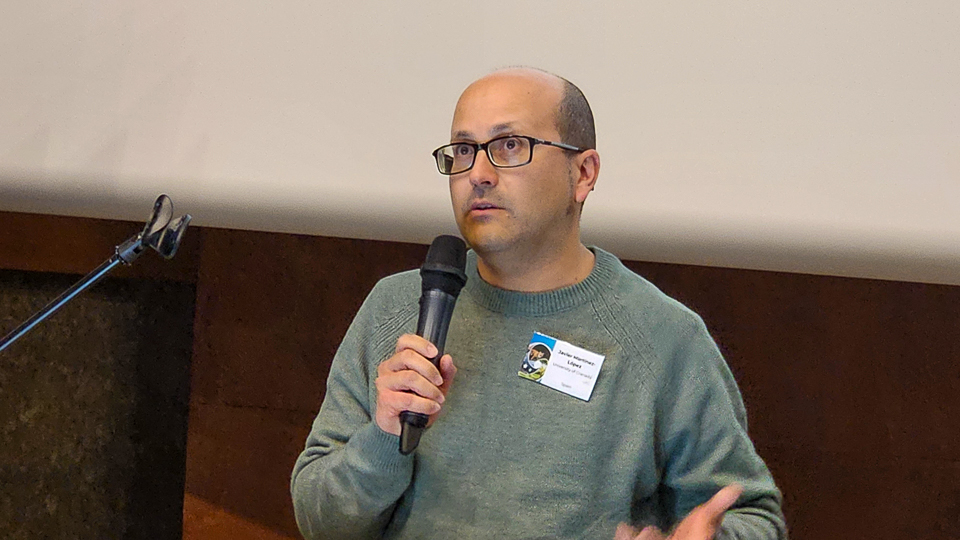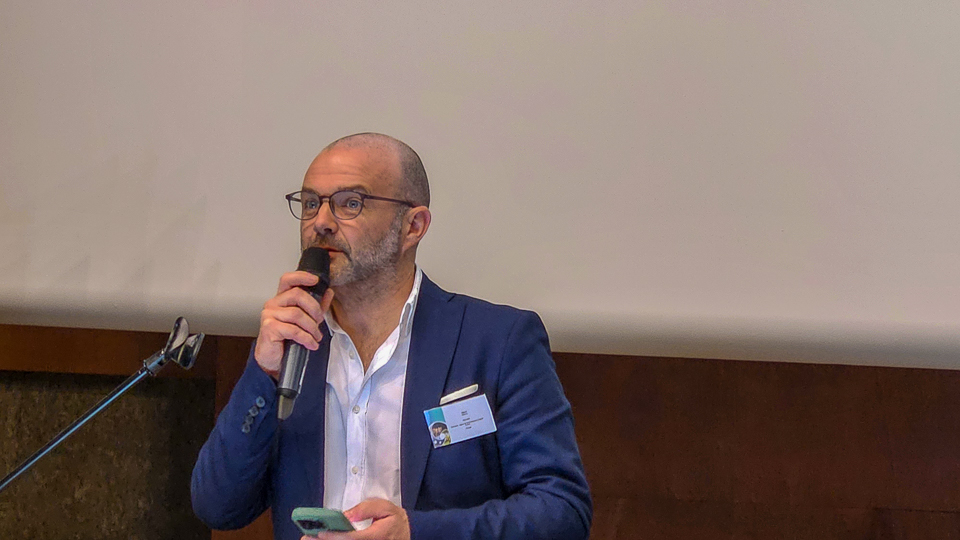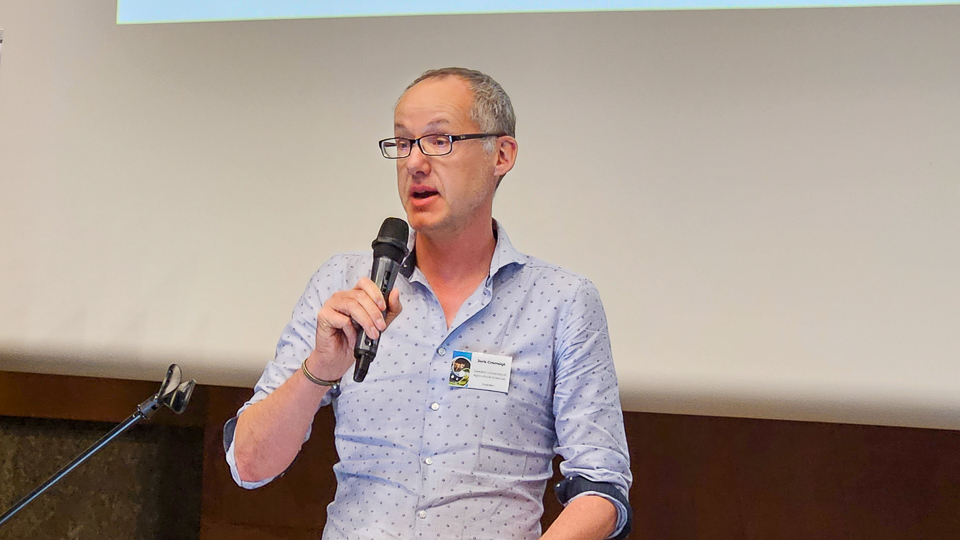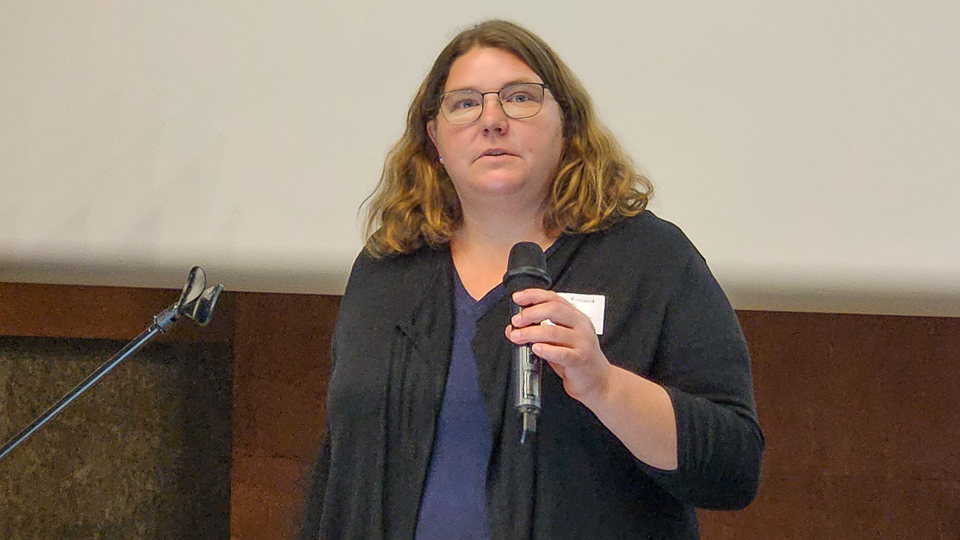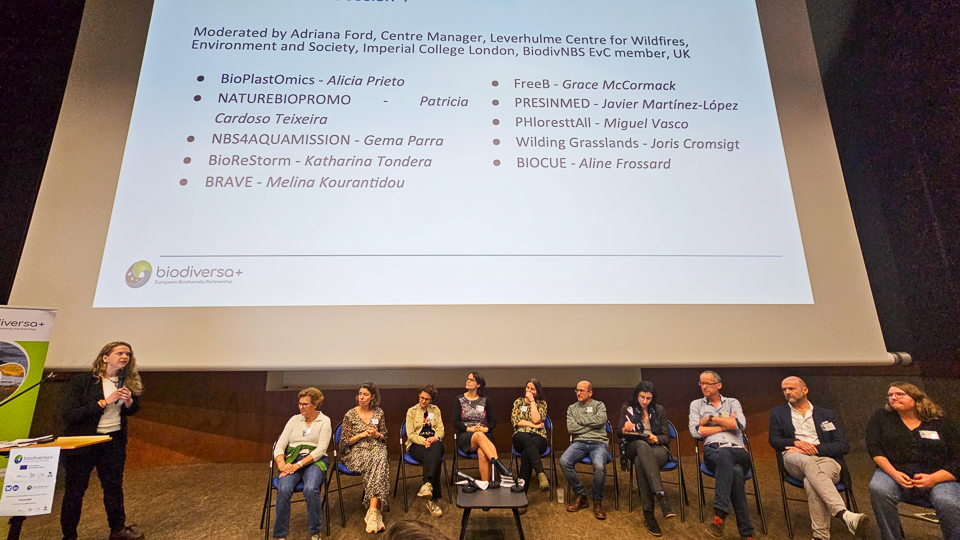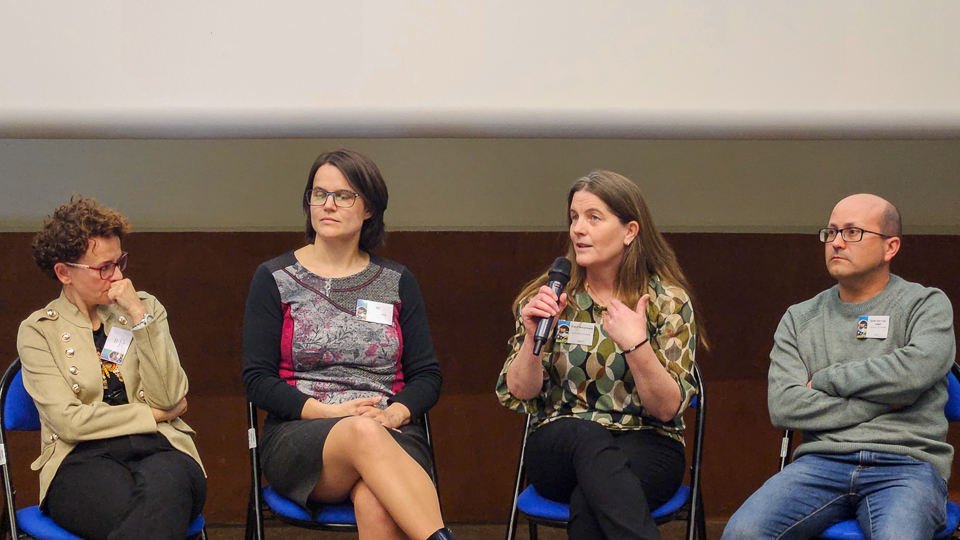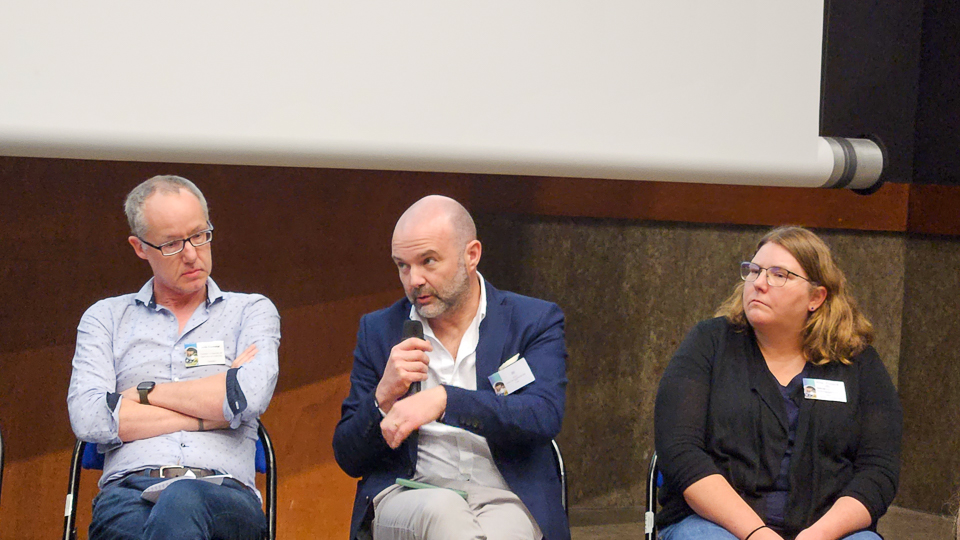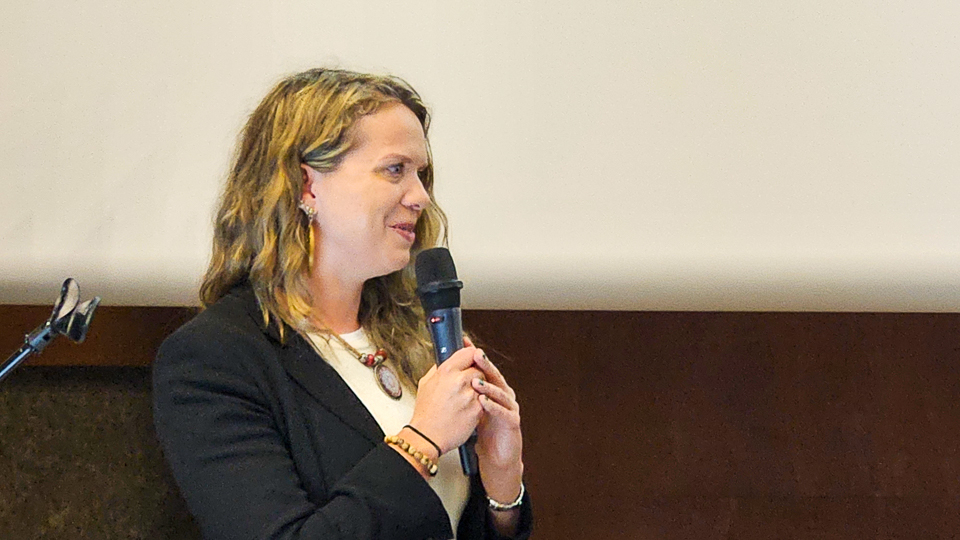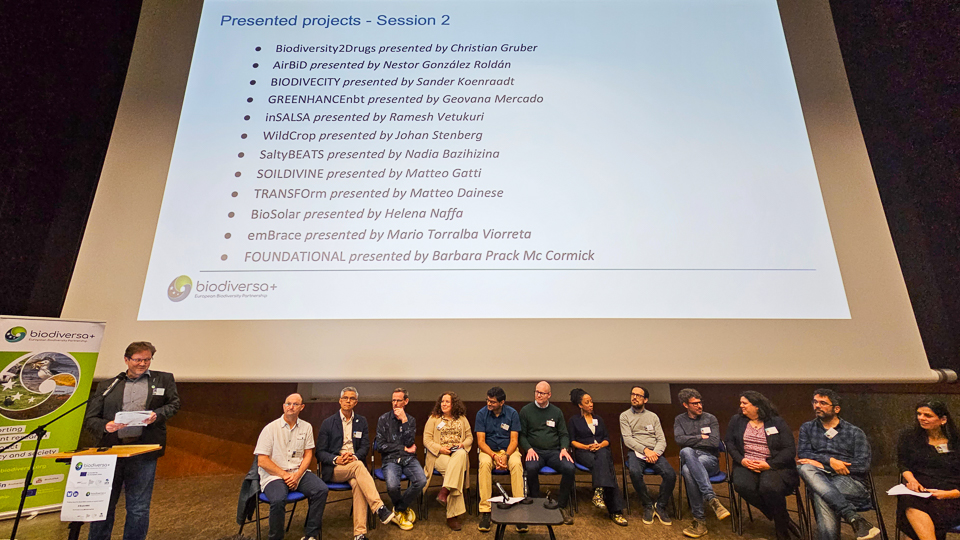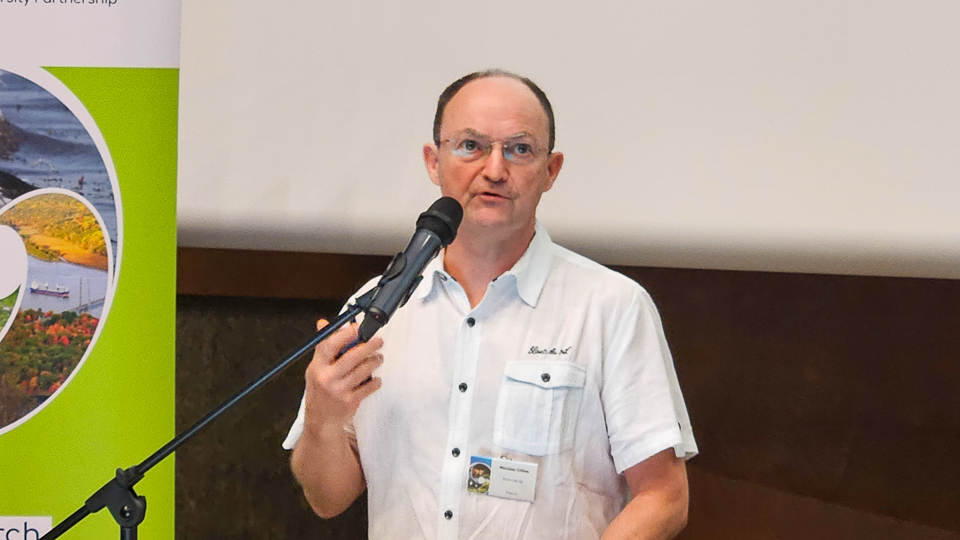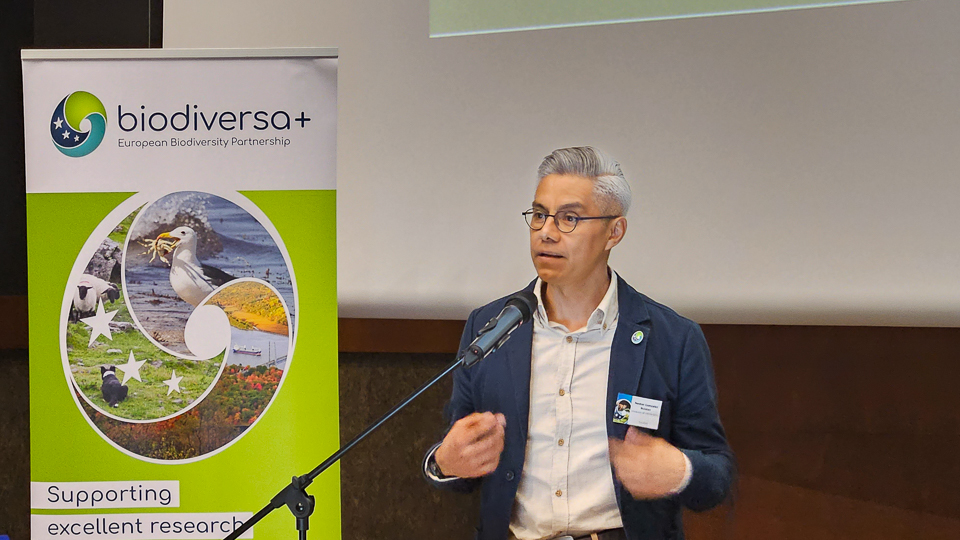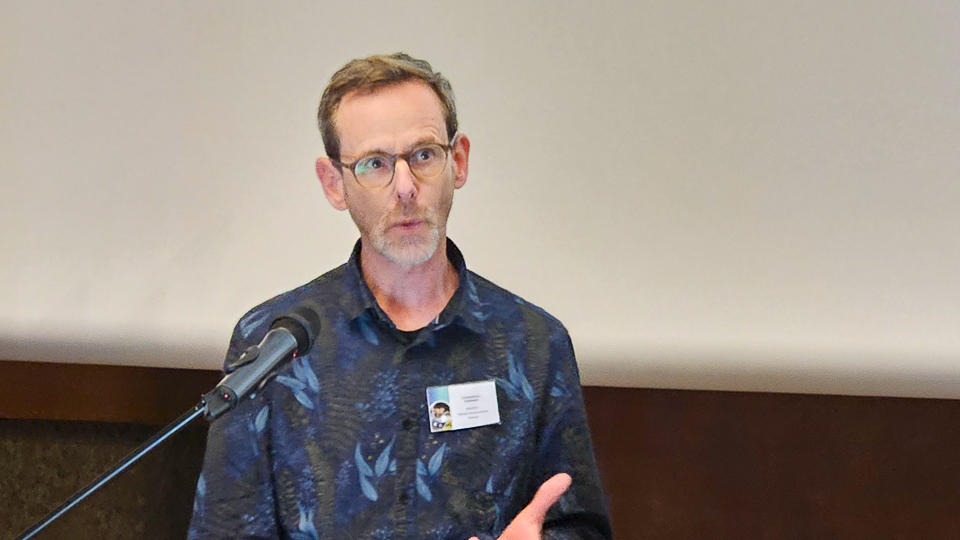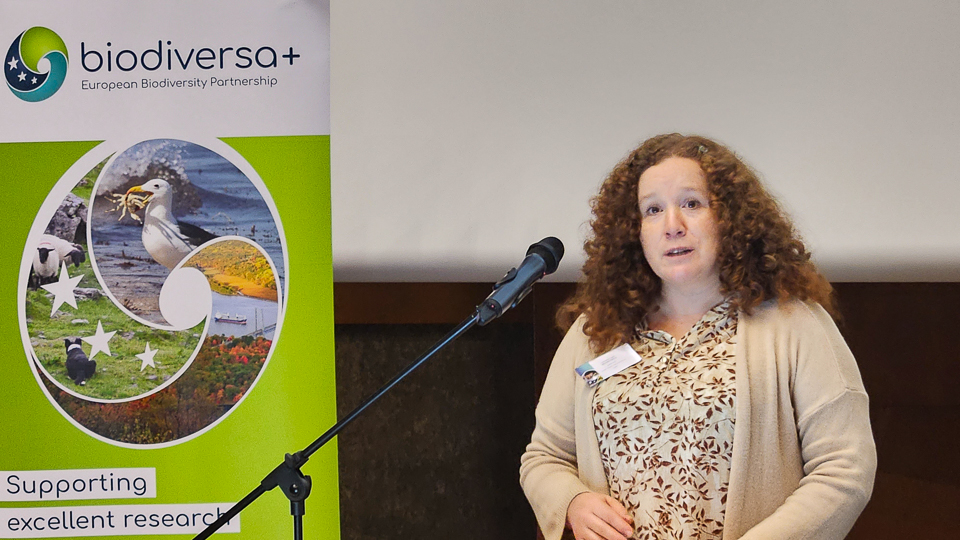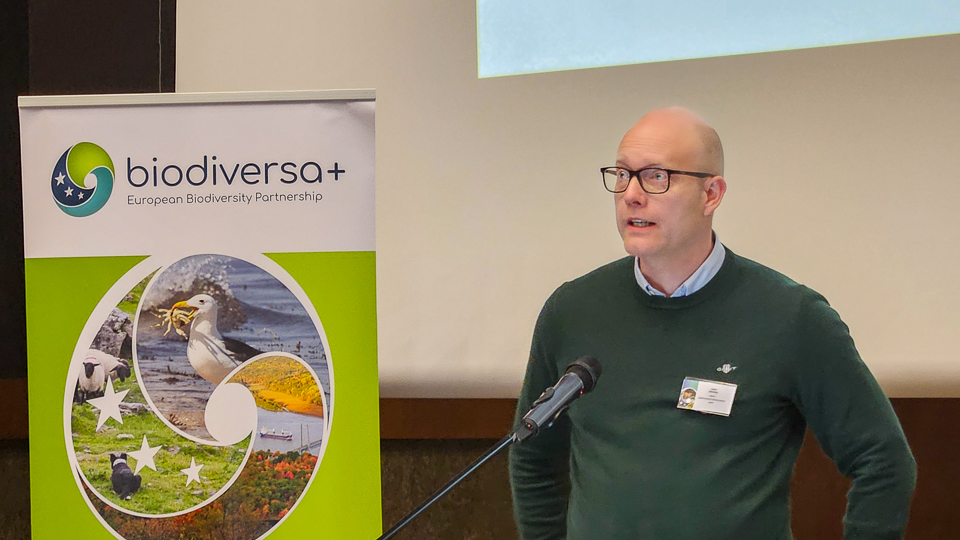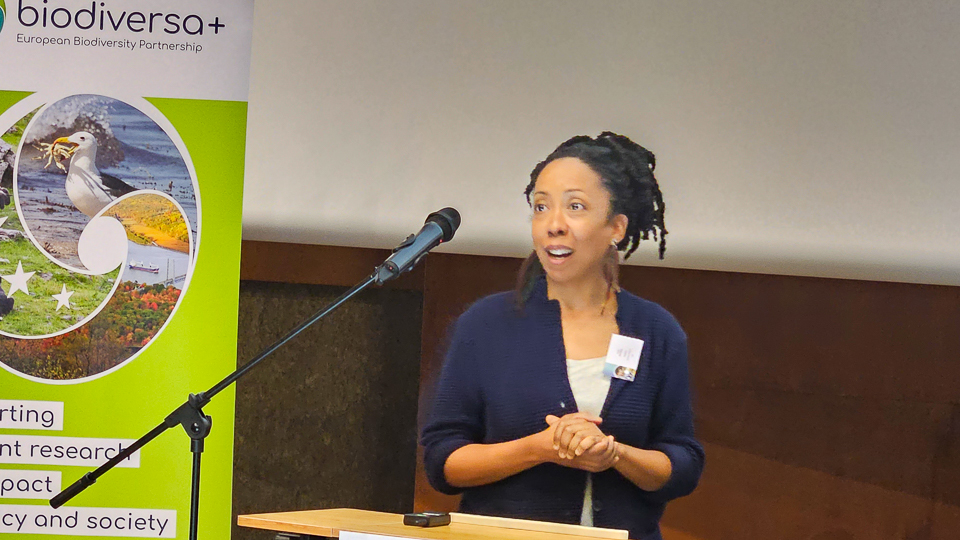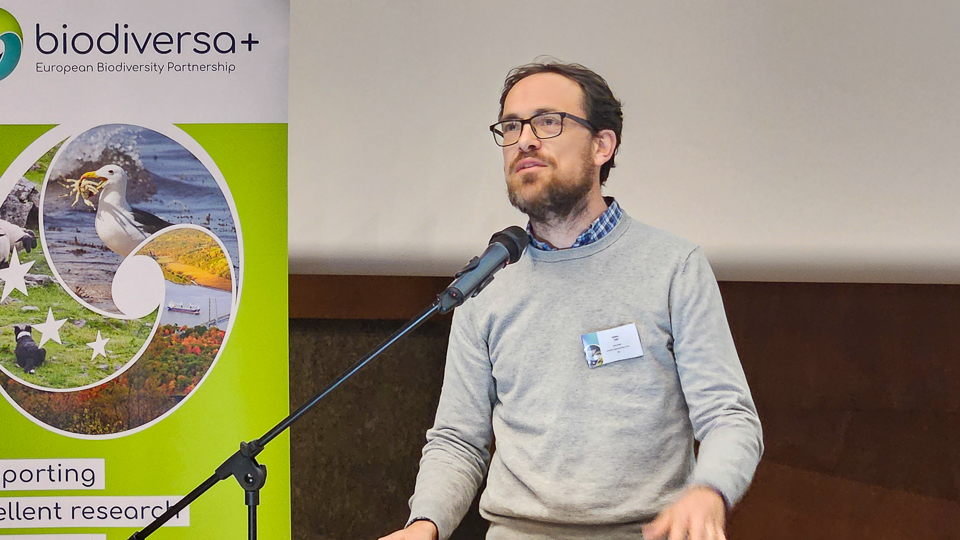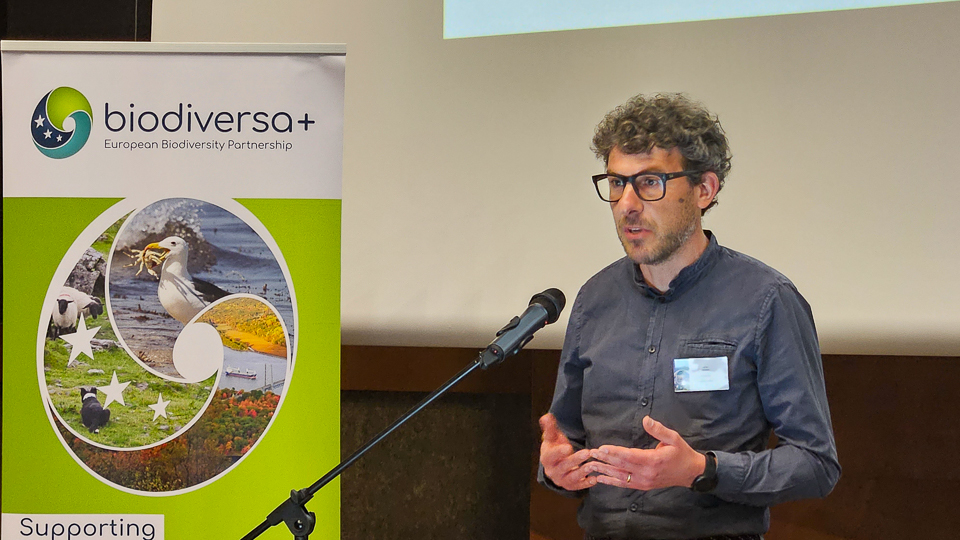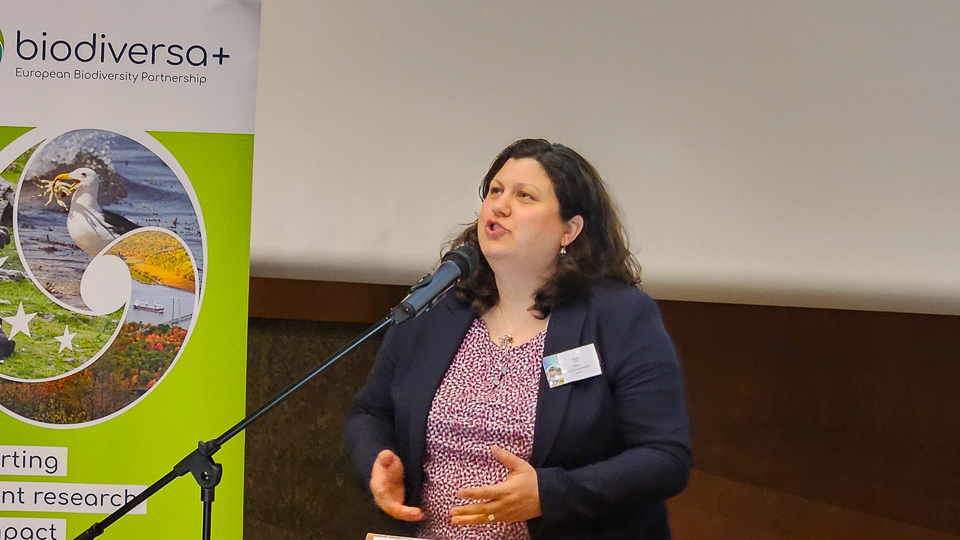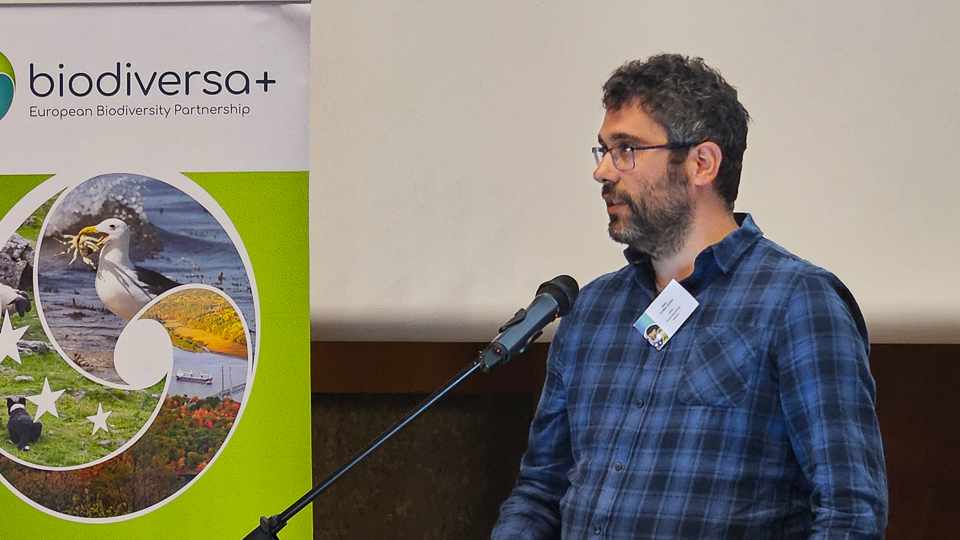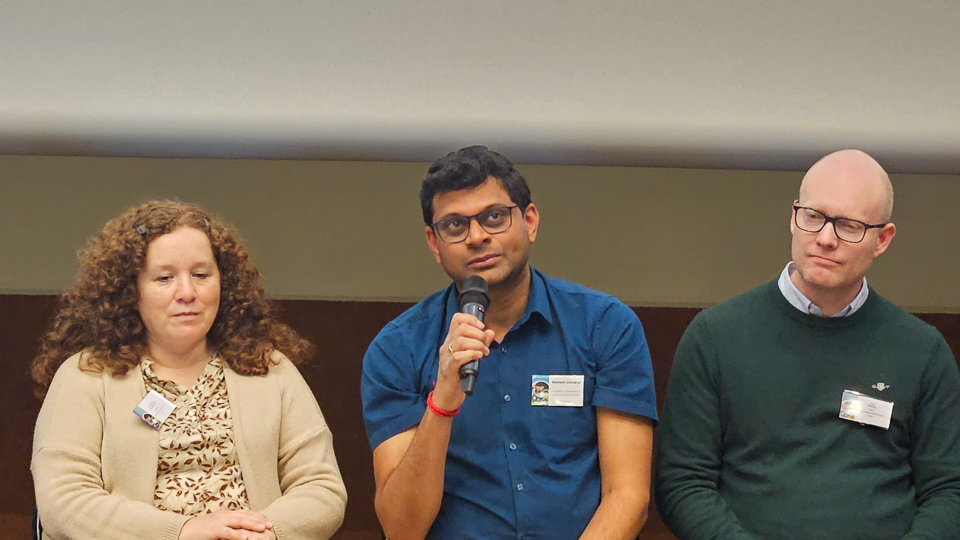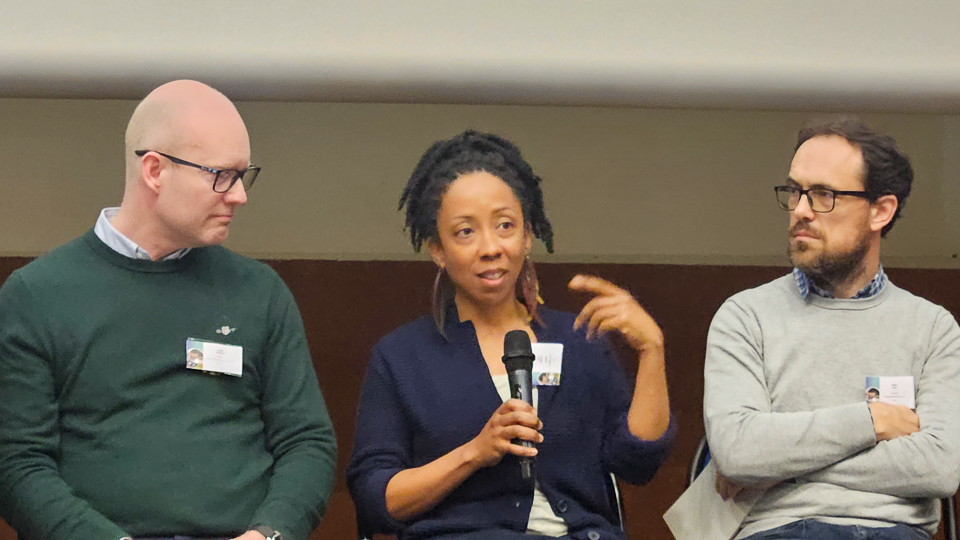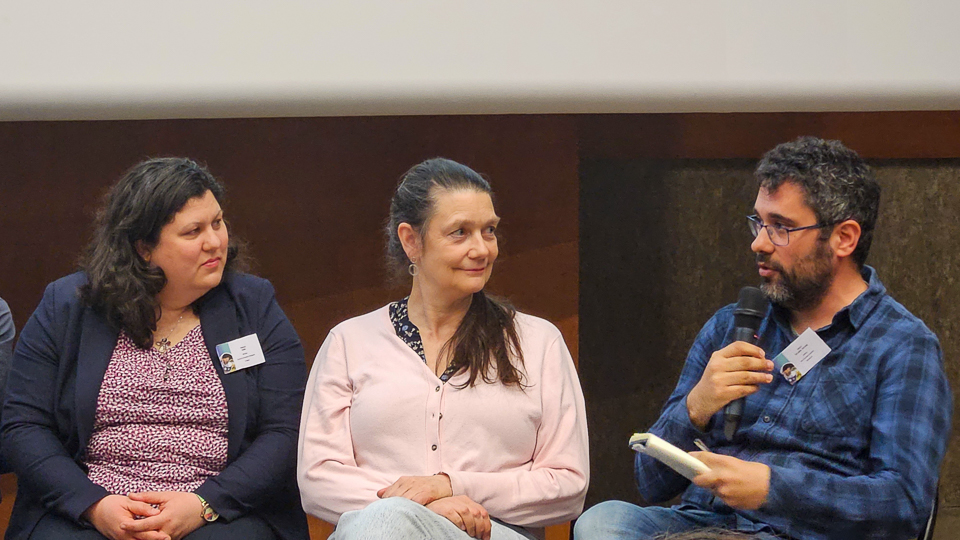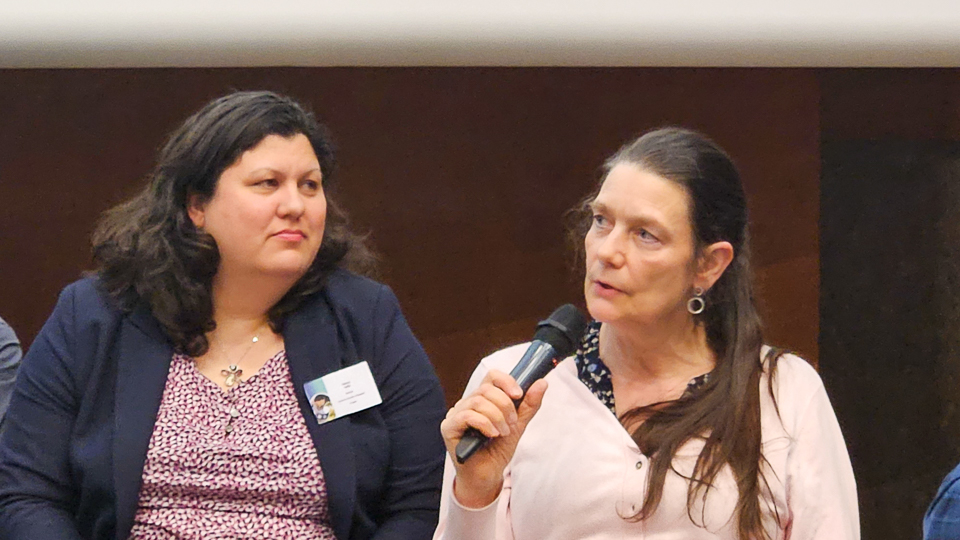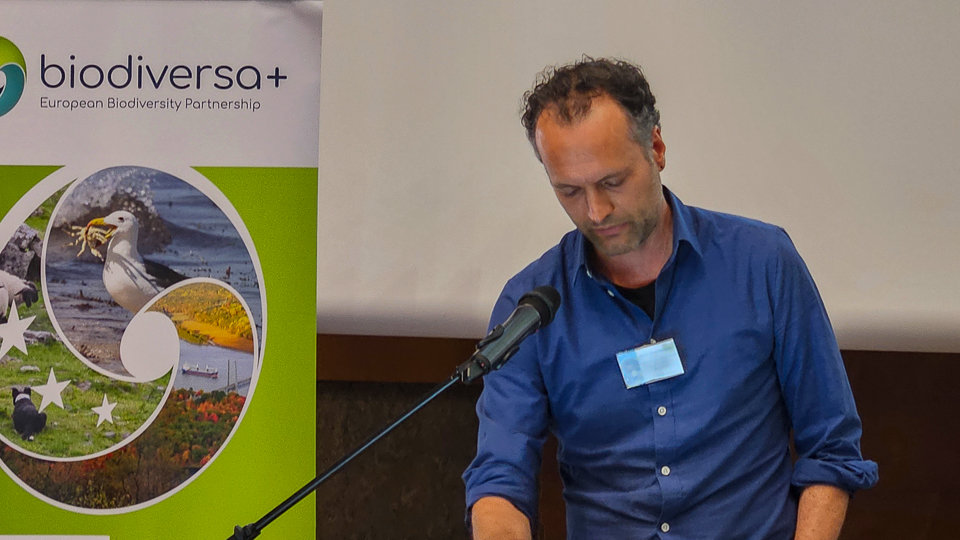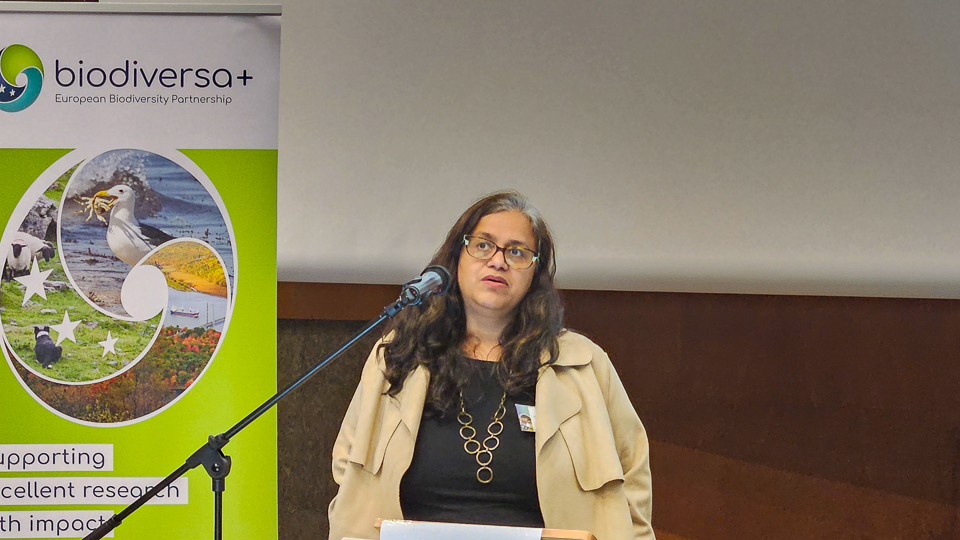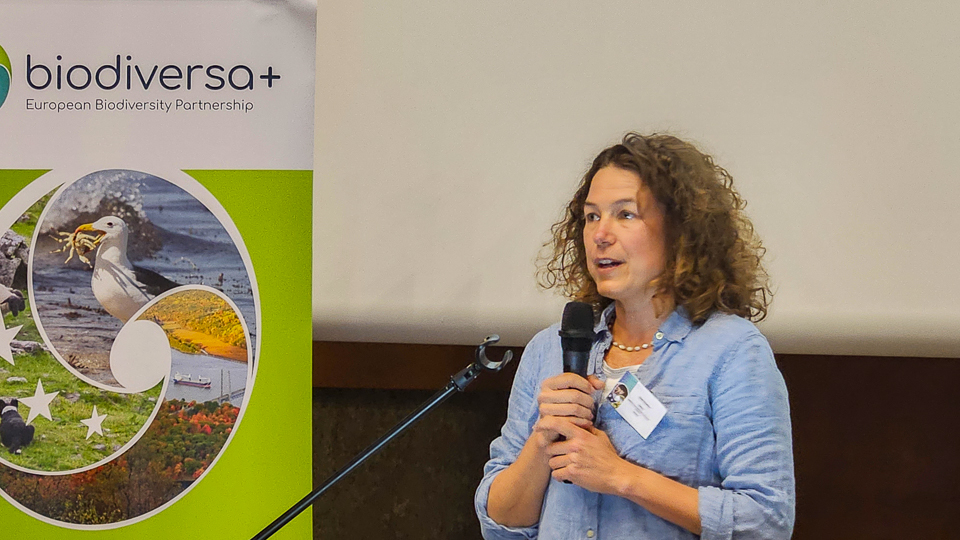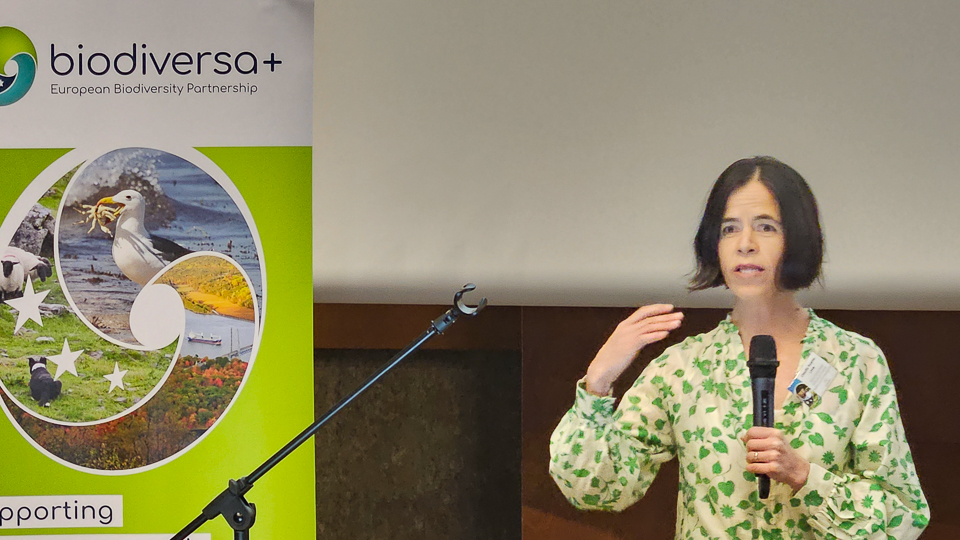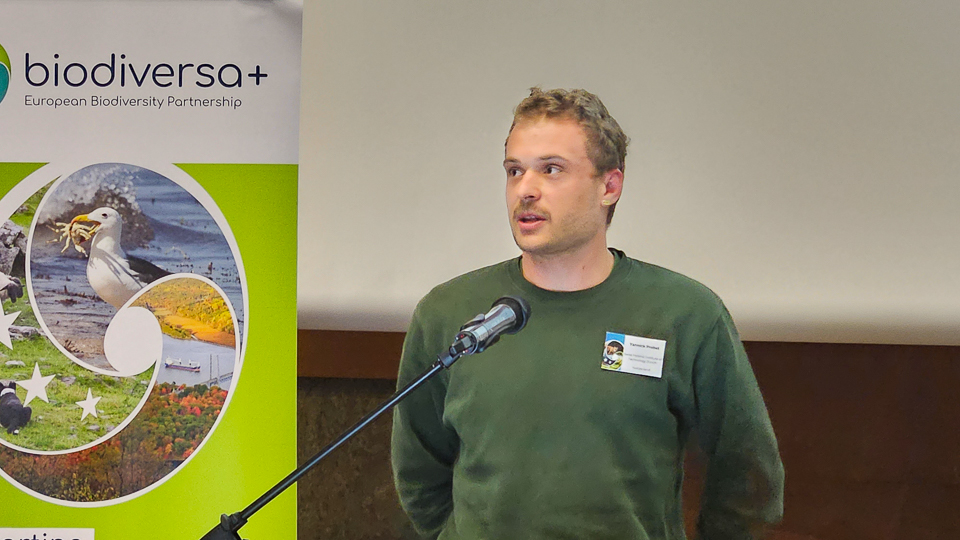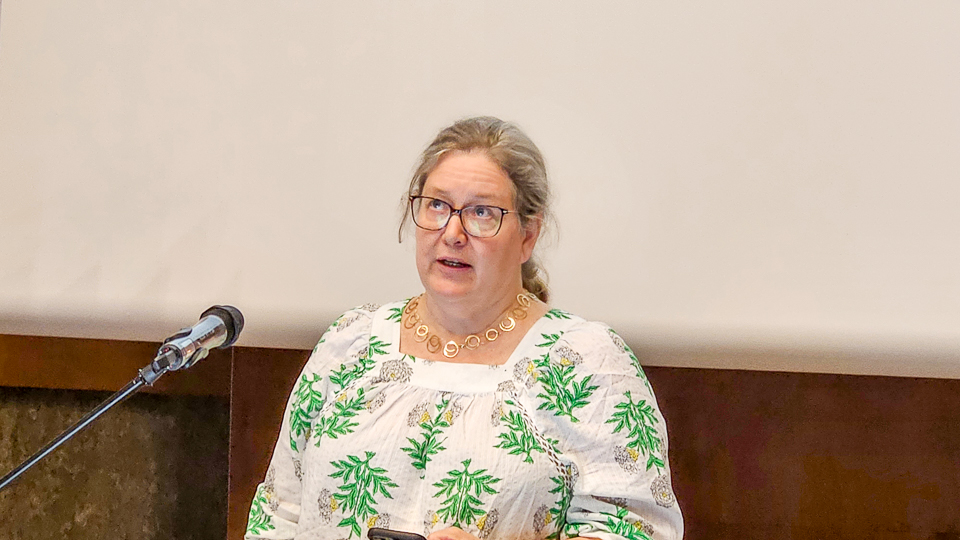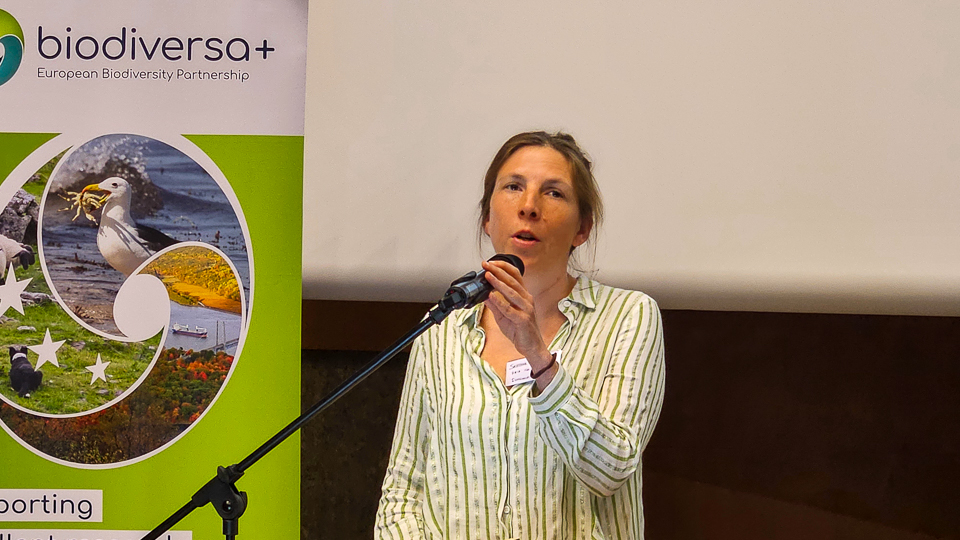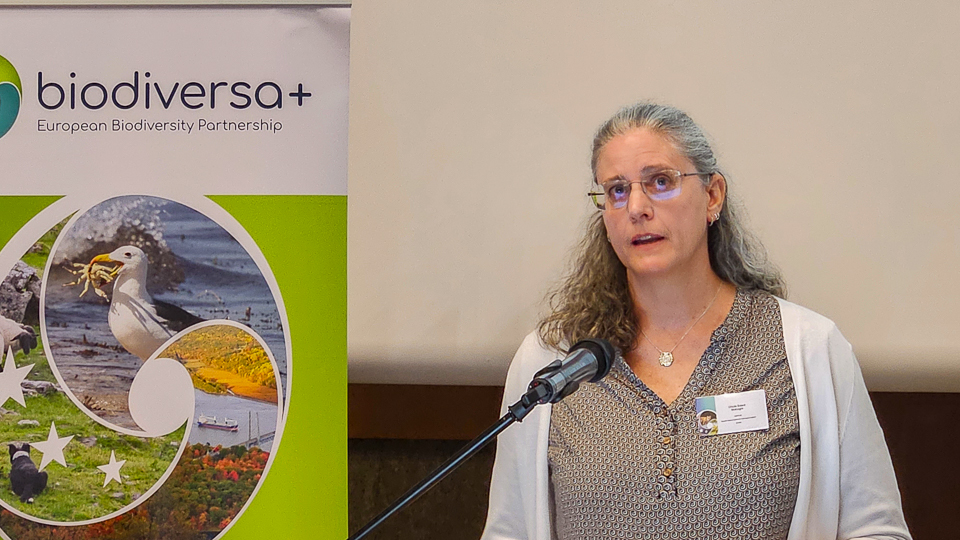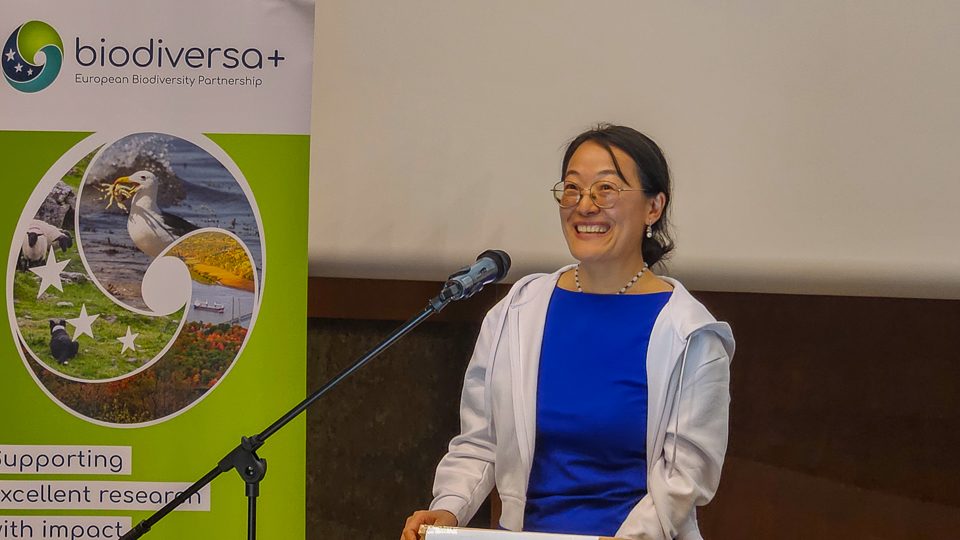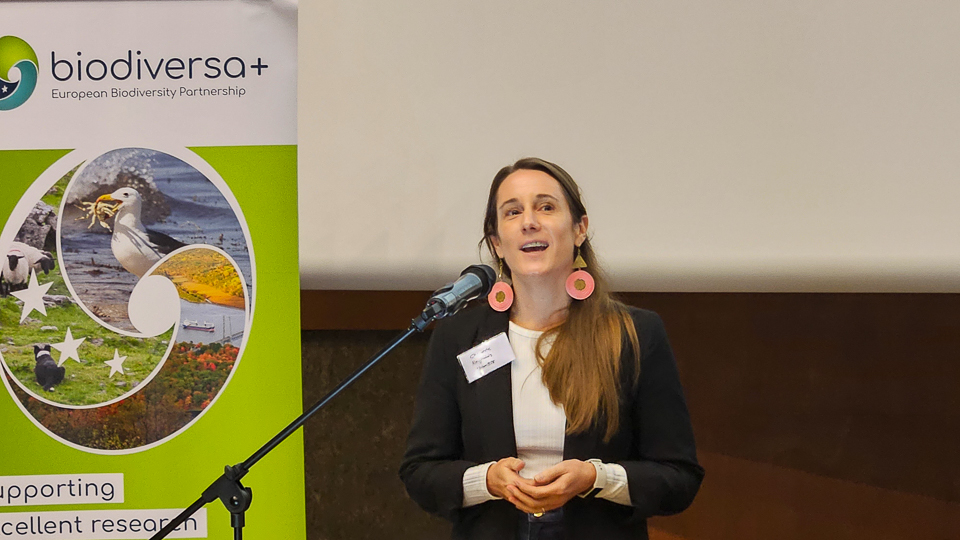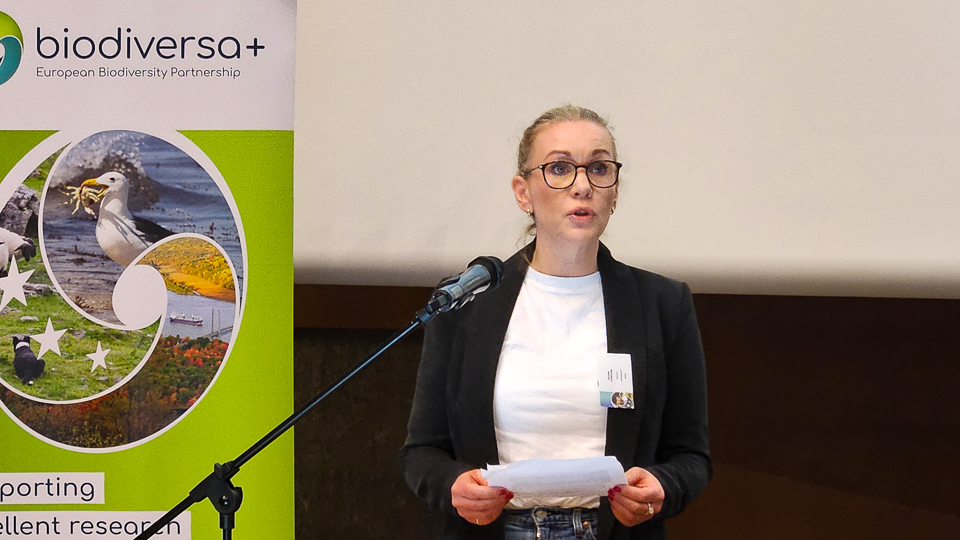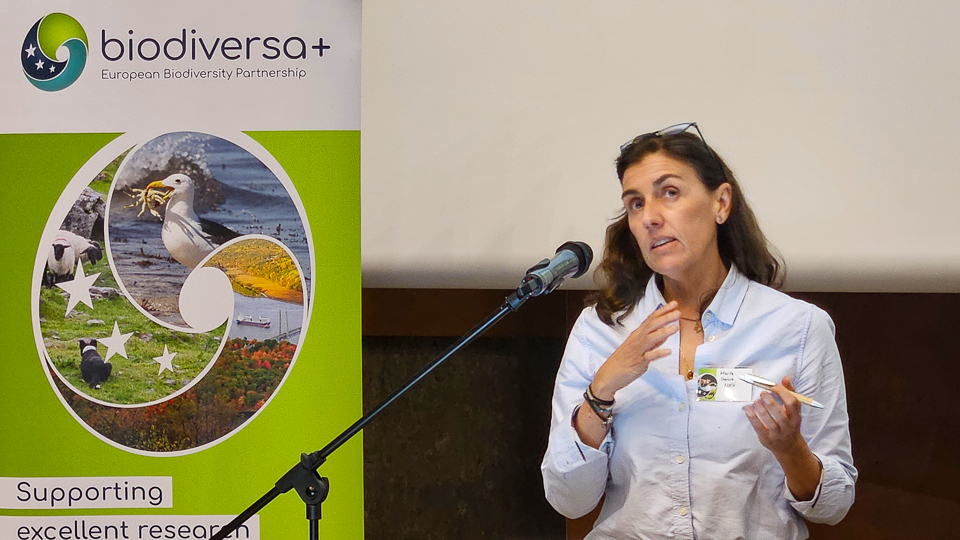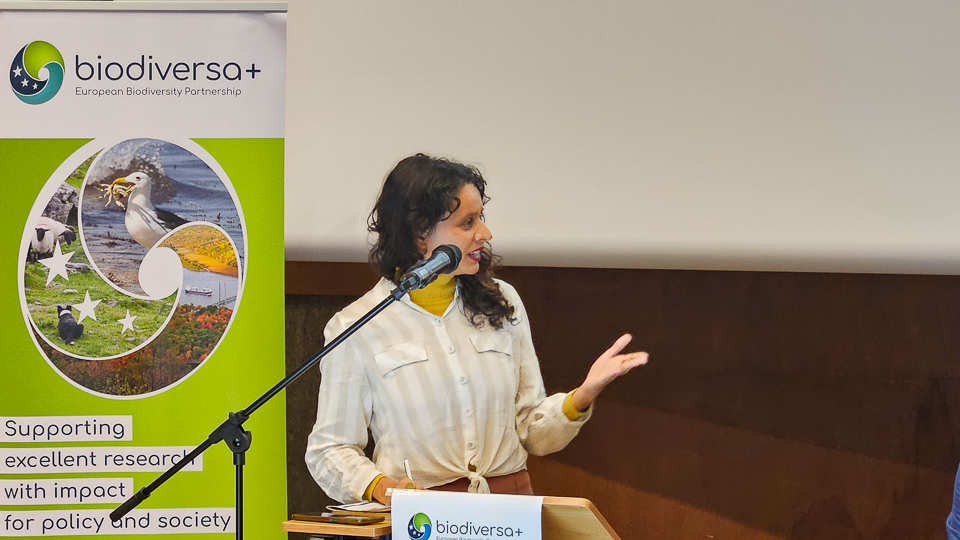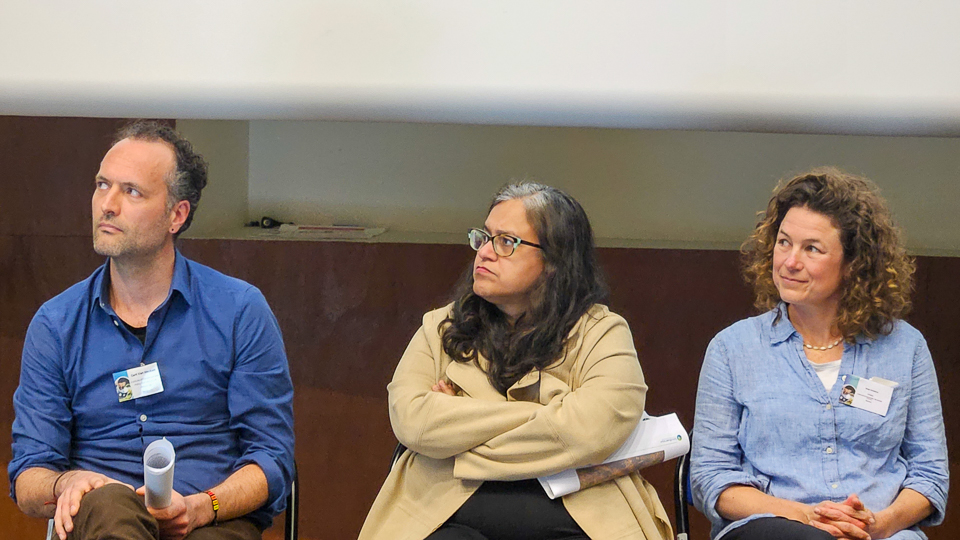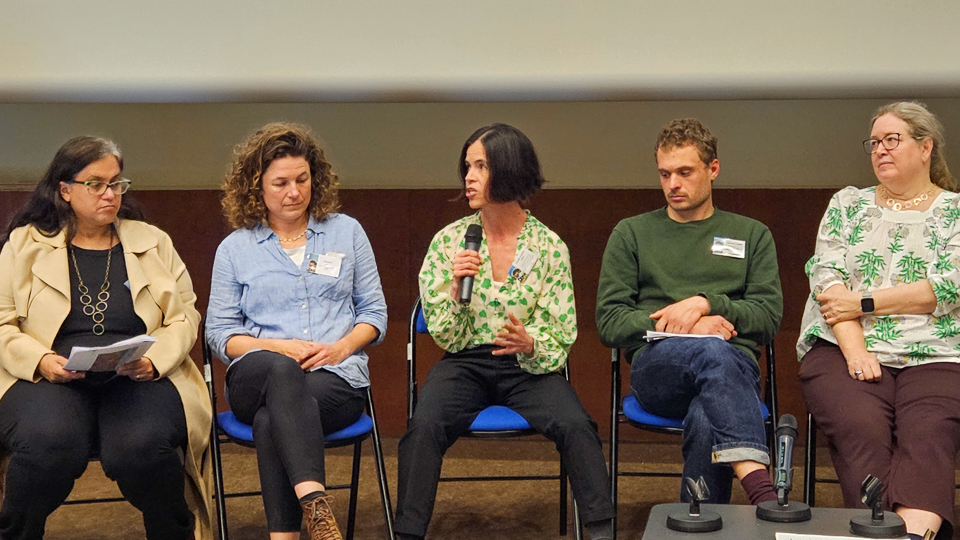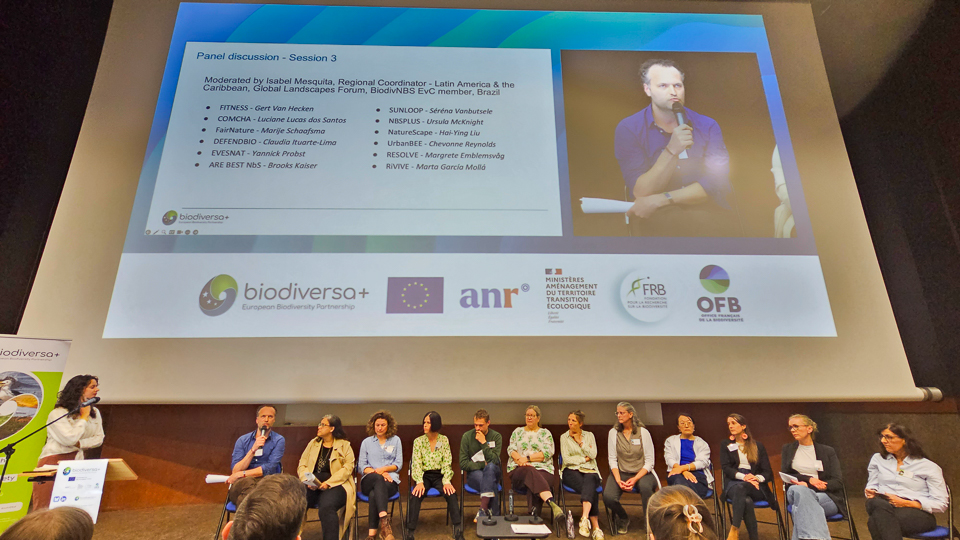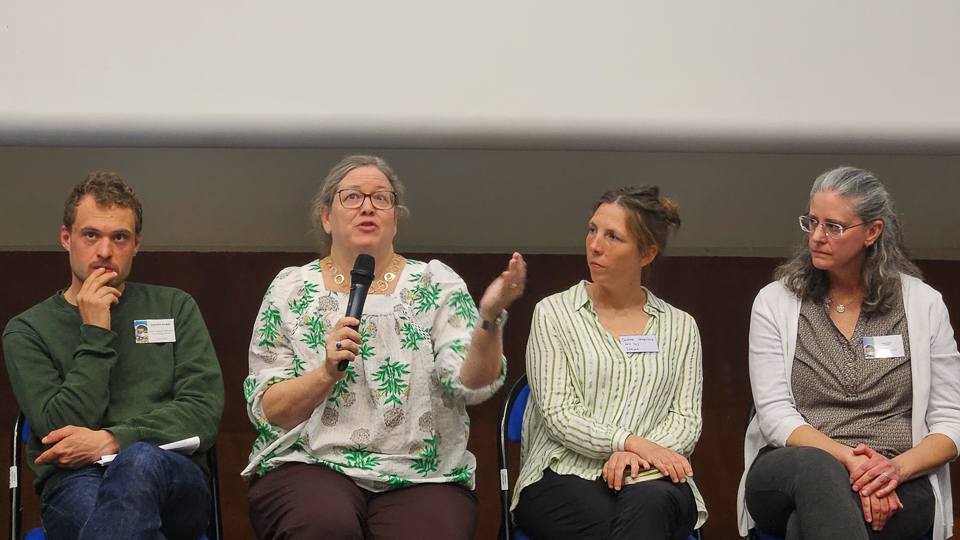We’re happy to share that the BiodivNBS projects are officially underway! On 9 April in Montpellier, we welcomed project coordinators and researchers, members of the evaluation committee, partners, funders, and European Commission representatives for the kick-off meeting. It marked a major milestone in our shared commitment to advancing Nature-based Solutions (NbS) for biodiversity, human well-being, and transformative change.
Insights
The day was packed with engaging exchanges and insightful reflections. Several key themes emerged repeatedly:
- Monitoring: How can we effectively monitor the success and multifaceted impacts of NbS? Participants agreed there’s no single answer. Metrics need tailoring to specific contexts, combining quantitative and qualitative data, and crucially, involving all stakeholders in defining what success looks like.
- Legacy: How can projects leave a legacy once the initial funding ends? Discussions frequently returned to ensuring project impacts endure beyond the funding period. Ideas ranged from smart data sharing and influencing policy, to forging connections with economic sectors, and embedding projects within local communities to ensure knowledge is shared and used long-term. Ideas like phased funding approaches were also floated.
- Justice: Engaging meaningfully with different perspectives on nature and addressing environmental justice were central concerns. Researchers shared strategies for navigating complex financial and governance barriers, understanding historical contexts and power structures, incorporating diverse knowledge systems, and ensuring participatory approaches genuinely empower marginalised groups in NbS design and implementation.
- Policy: Effective NbS require strong links between science and policy. Participants stressed the need for researchers to actively engage with policymakers at all levels and to tailor outputs to different audiences. The goal is not just to inform, but to embed NbS into existing policies and frameworks in a way that resonates with real-world needs.
- Collaboration: Participants recognised the value of working across project boundaries and with other initiatives. Sharing successes, challenges, and lessons learned between projects, across disciplines, and with practitioners is key to avoid duplication and maximise collective impact. Biodiversa+ will support clustering activities to build synergies.
- Scale: The question of scale—how to move from local action to systemic impact—was a recurring topic. While scaling is necessary, it must be done in ways that remain rooted in place, people, and context. That could mean scaling through ideas, practices, or policy pathways rather than simply replicating models.
Outline of key interventions
Three keynote speakers set the stage for the discussions:
- Magnus Tannerfeldt (co-chair of Biodiversa+), Bénédicte Blaudeau (DG ENV), and Susanna Gionfra (DG RTD) opened the event by underlining the key role of NbS in achieving EU climate and biodiversity goals—especially within the framework of the EU Biodiversity Strategy for 2030 and the Nature Restoration Regulation.
- Chiara Baldacchini (Biodiversa+) traced the evolution of Biodiversa+’s commitment to NbS, from its early work in defining the field back in 2014, to today’s integrated approach combining research calls, policy engagement, and synthesis of results. She encouraged funded projects to work closely together, through clustering and shared platforms like NetworkNature.
- Claire Brown (UNEP-WCMC), co-chair of the evaluation committee, gave an overview of the BiodivNBS call process. Out of 262 pre-proposals, 34 projects were ultimately selected—covering a rich mix of ecosystems and thematic areas, from agriculture and urban planning to traditional knowledge and nature restoration targets.
- Laura Wendling (SINTEF) unpacked the practicalities of implementing NbS and walked through key concepts, from clear planning to robust monitoring and aligning with EU policies like LULUCF and urban development strategies.
- Erich Wolff (Utrecht University) delved into the concept of transformative change in the context of NbS. He emphasised the importance of understanding the local context and diverse perspectives on nature and environmental issues, stressing the power of storytelling in connecting with people, alongside the importance of data and policy alignment.
- The panel discussion that followed covered several key topics. These included the importance of both spatial and temporal scales and monitoring metrics to produce evidence and drive transformative change. It also highlighted the need to engage policymakers and local communities to ensure lasting impact and effective knowledge sharing.
- Three sessions followed to present the 34 BiodivNBS projects, with each coordinator providing a brief overview of their research aims and approaches. A panel discussion followed each session.
- The event closed with remarks from the Biodiversa+ communication and follow-up teams, followed by words from Magnus Tannerfeldt and Catherine Julliot (French Ministry of the Environment), who voiced their support and hopes for the success of the BiodivNBS projects.
We extend our warm thanks to all speakers and participants, as well as to our French partners—ANR, OFB, FRB, MTE_FR, and the University of Montpellier—for hosting and supporting the event!
Join us on 9 April 2025, from 9:00 to 16:45 CEST to discover 34 new projects shaping the future of Nature-based Solutions (NbS)! Funded through the BiodivNBS call, these 3-year projects will delve into:
- NbS and human well-being: exploring synergies and managing trade-offs
- NbS as a tool for mitigating human-driven biodiversity loss
- The role of NbS in achieving just transformative change
This event will feature presentations from each project, followed by interactive panel discussions on key themes. Held back-to-back with our Science-Policy Forum (8 April), this is a prime opportunity to connect with the NbS research community and discuss coordination at all levels!
09:30 – 09:35 Welcome words & introduction, by Magnus Tannerfeldt (Co-chair of Biodiversa+, FORMAS, Sweden)
09:35 – 09:45 Welcome words by the European Commission, by Bénédicte Blaudeau (Policy Officer, DG Environment, European Commission) & Susanna Gionfra (Policy Officer, DG Research & Innovation, European Commission)
09:45 – 10:00 Introduction to Biodiversa+: General objectives and activities on Nature-based Solutions, by Magnus Tannerfeldt & Chiara Baldacchini (Biodiversa+ Work Package leader on “Nature-based Solutions, Biodiversity & Business”, MUR, Italy)
10:00 – 10:15 General impression of the BiodivNBS Call, by Claire Brown (Senior Programme Officer Ecosystem Assessment UNEP-WCMC, policy-management co-Chair of the BiodivNBS Evaluation Committee, United Kingdom)
10:15 – 10:35 Nature-based solutions to reverse environmental degradation and biodiversity loss, by Laura Wendling (Senior Research Scientist, SINTEF community, Norway)
10:35 – 10:55 Enabling transformative change through impact and collaborations in nature-based Solutions, by Erich Wolff (Postdoctoral Researcher, Utrecht University, Scientific member of the Biodiversa+ Advisory Board, BiodivNBS EvC member, The Netherlands)
10:55 – 11:20 Panel discussion and interactions with the room, Moderated by Magnus Tannerfeldt
10:20 – 11:55 Break
11:55 – 12:45 Moderated by Adriana Ford (Centre Manager, Leverhulme Centre for Wildfires, Environment and Society, Imperial College London, BiodivNBS EvC member, UK)
- BioPlastOmics, Discovering Brazilian Biodiversity-Driven Plastic Degradation through Omics Analysis, presented by Alicia Prieto
- NATUREBIOPROMO, Hybrid NATURE-Based Solutions as BIOdiversity PROMOters and Their Implications for Emerging Contaminants Mitigation, presented by Patricia Cardoso Teixeira
- NBS4AQUAMISSION, Nature Based Systems Mission for Aquatic Biodiversity Enhancement: Reducing Pharmaceutical Products Pollution in Urban and Rural Environments, presented by Gema Parra
- BioReStorm, Anticipating Biological Succession in Rehabilitation of Long-Term Operated Nature-Based Solutions for Stormwater Treatment in Different Climate Zones, presented by Katharina Tondera
- BRAVE, Biological Invasions Resolved through Adaptable, Versatile, and Engaging Nature-Based Solutions, presented by Melina Kourantidou
- FreeB, Studying FREE-living honey Bee colonies in Europe: nature-based solutions to safeguard diversity, ensure resilience, and promote transformative change in beekeeping, presented by Grace McCormack
- PRESINMED, Preserving the singularity of Mediterranean high-mountain biodiversity hotspots: a NBS approach, presented by Javier Martínez-López
- PHorestAll, Planetary Health by Healing Forests as Nature Based Solution, presented by Miguel Vasco Ribeiro
- Wilding Grasslands, Wilding as nature-based opportunity for grassy ecosystems under diverse land tenure systems, presented by Joris Cromsigt
- BIOCUE, Microbial biodiversity and Carbon Use Efficiency as Nature Based Solution for soil C stabilization, presented by Aline Frossard
12:45 – 14:15 Lunch
14:15 – 15:05 Moderated by Masoumeh Mirsafa (Senior Lecturer, Department of Architecture and Built Environment, Lund University, BiodivNBS EvC member, Sweden)
- Biodiversity2Drugs, Peptide Biodiversity: Advancing Human Health Through Nature’s Pharmacological Treasures, presented by Nicolas Gilles
- AirBiD, Airborne biological diversity shaped and modelled by Urban Green Elements, presented by Nestor Gonzalez Roldan
- BIODIVECITY, Greening cities as nature-based solution and their impact on vectors and vector-borne disease risks, presented by Sander Koenraadt
- GREENHANCEnbt, Growing Resilience by Exploring Methods to Enhance Urban Agriculture for Human Well-being, Community and Biodiversity Enrichment, presented by Geovana Mercado
- inSALSA, Increasing Sustainability of Agribiologicals by Living Labs in sub-Saharan Africa, presented by Ramesh Vetukuri
- WildCrop, Optimal rewilding of crop-bodyguard interactions facilitating the green transformation of agriculture, presented by Johan Stenberg
- SaltyBEATS, Salty symphonies: bringing back BiodivErsity in mArginal Saltlands, presented by Nadia Bazihizina
- SOILDIVINE, Promoting Soil Quality and Biodiversity in Vineyard Ecosystems Through Nature-Based Solutions, presented by Matteo Gatti
- TRANSFOrm, Back to the future: Traditional agroforestry systems as NbS to face multiple societal challenges, presented by Matteo Dainese
- BioSolar, Solar farms: an opportunity to recover biodiversity in farmlands, presented by Sandra Wright
- emBrace, Reconciling Food Systems Sustainability and Biodiversity Conservation in Multifunctional Protected Areas, presented by Mario Torralba Viorreta
- FOUNDATIONAL, transFOrming rUral laNDscapes And communiTIes thrOugh NAture-based soLutions: integrating biodiversity conservation and human well-being at the nature-agriculture interphase, presented by Barbara Prack Mc Cormick
15:05 – 15:35 Break
15:35 – 16:25 Moderated by Isabel Mesquita (Regional Coordinator – Latin America & the Caribbean Global Landscapes Forum, BiodivNBS EvC member, Brazil)
- FITNESS, Financing Transformative Nature-based Solutions for Equitable and just Sustainability Solutions, presented by Gert Van Hecken
- COMCHA, Community-based change: local and traditional knowledges in NBS, presented by Luciane Lucas dos Santos
- FairNature, Developing NbS scaling approaches to achieve just transformative change, presented by Marije Schaafsma
- DEFENDBIO, Biosphere defenders leveraging legal and governance tools for just sustainability transformations, presented by Claudia Ituarte-Lima
- EVESNAT, Nature-based Solutions to meet EU Nature Restoration Targets: Evaluating synergies and trade-offs across Ecosystem Services for biodiversity conservation, climate change mitigation, and resilience and autonomy improvement, presented by Yannick Probst
- ARE BEST NbS, Aquatic and Riparian Ecosystems: Biodiversity and Economic Service Transformations from NbS, presented by Brooks Kaiser
- SUNLOOP, Spontaneous Urban Nature and LOcal nO net land take Policies, presented by Séréna Vanbutsele
- NBSPLUS, NBS Services Promoting Local Biodiversity, Well-being and Scalable Solutions, presented by Ursula McKnight
- NatureScape, Enhancing Urban Sustainability for Environmental Quality and Human Well-being through Nature-Based Solutions Transformation Labs, presented by Hai-Ying Liu
- UrbanBEE, Promoting Biodiversity, Ecosystem Services and Societal Engagement Across Diverse Urban Ecosystems, presented by Chevonne Reynolds
- RESOLVE, NatuRE based SOLutions for sustainable use of high north marine biodiVersity and ecosystems sErvices, presented by Margrete Emblemsvåg
- RiVIVE, River Conviviality: Advancing socio-environmentally just river restoration through nature based solutions, presented by Marta García Mollá
16:25 – 16:35 A few words by the Biodiversa+ Follow-up and Communication teams, by Matěj Štěpánek and Ondřej Kusbach (BiodivNBS Follow-up Team, TA CR, Czech Republic), & Leendert Plaetinck and Phong Hoang (Communication Officers, BELSPO, Belgium)
16:35 – 16:40 Concluding words, by Catherine Julliot (Head of Research at the Ministry for Ecological Transition, France) & Magnus Tannerfeldt
